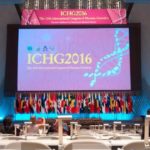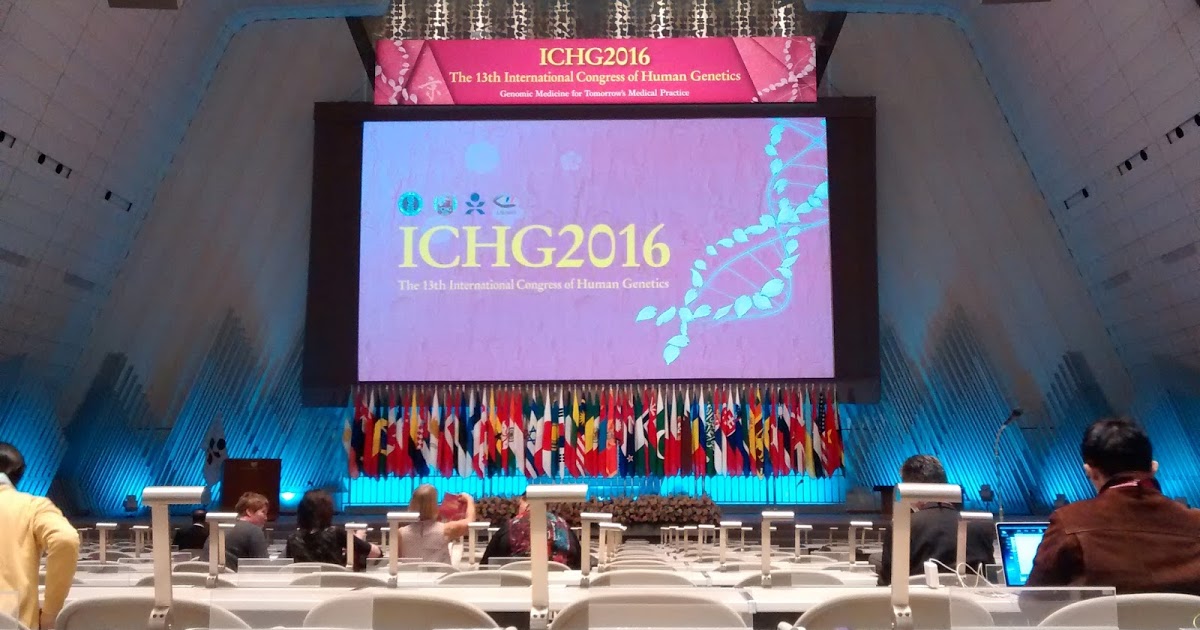Engaging 7,000 people about the return of results from sequencing research
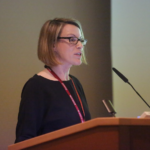
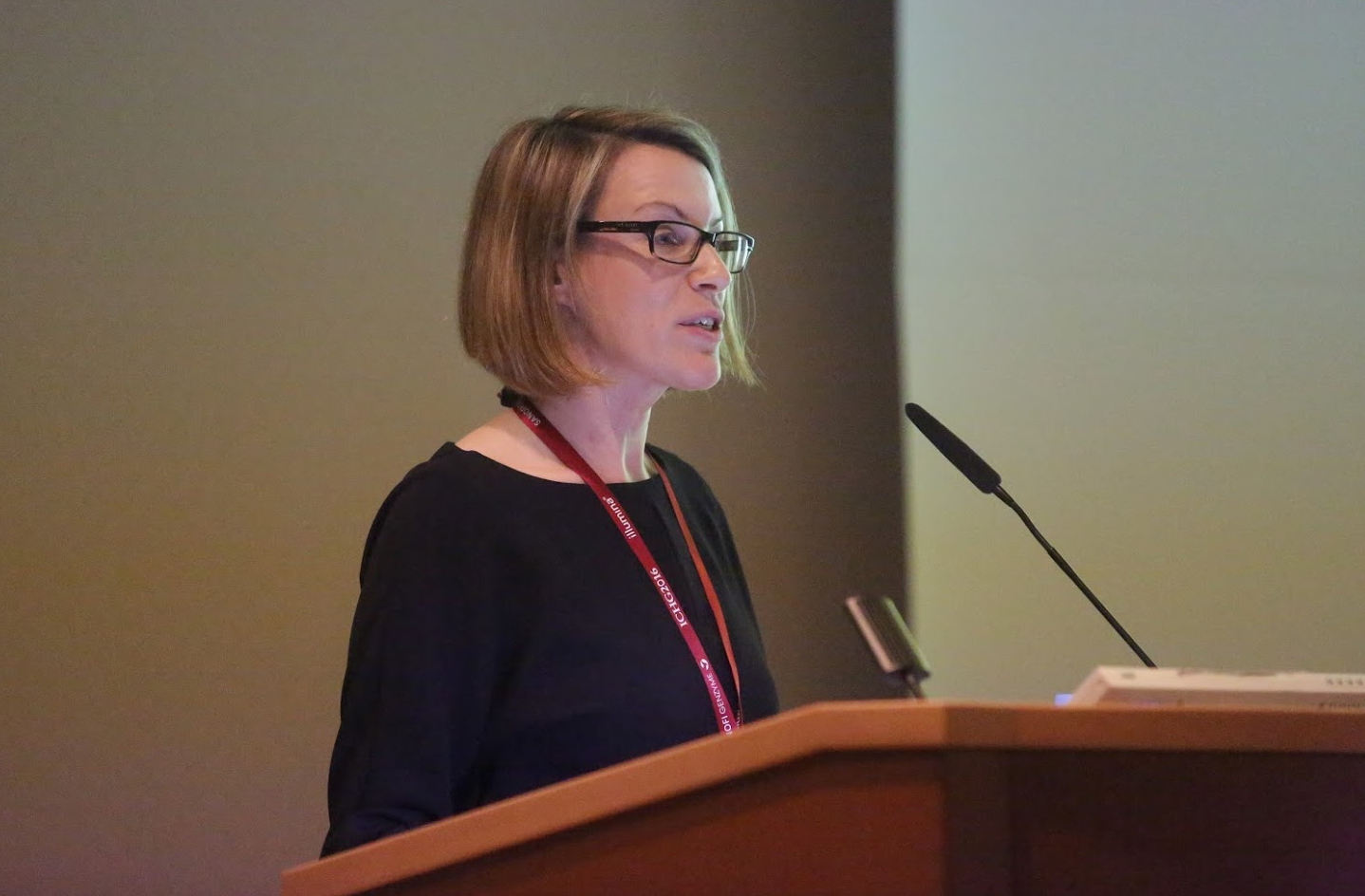
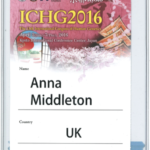
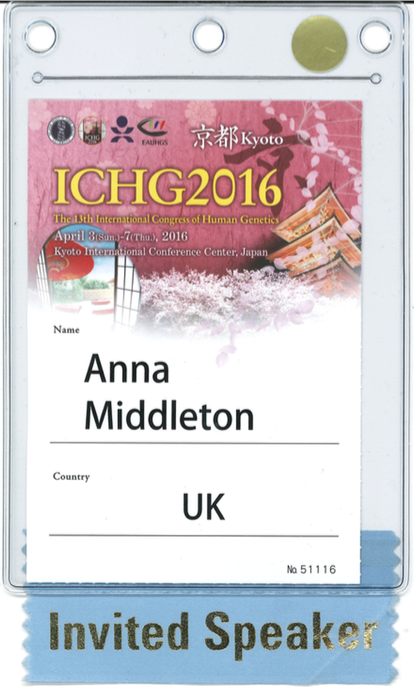
5th April 2016
Anna gave a presentation on her findings from the GenomEthics stydy on the third day of 13th International Congress of Human Genetics, held in Kyoto, Japan in April 2016. The congress drew over 3,000 attendees from over 70 countries. Anna’s presentation was a part of the session called “Genetic Counseling/Education”, convened b Kristine Barlow-Stewart and Junko Yotsumoto.
From the Congress program:
“Genetic counseling is defined as a communication process that aims to help people understand and adapt to the medical, psychological and familial implications of genetic contributions to health conditions (Resta et al JGC, 2006). Necessary for this process is the capacity of the practitioner to assess risk based on personal and/or family histories and/ or genetic/genomic test information. They also need to utilize education and counseling skills to promote understanding of the condition and its inheritance, awareness of resources and adaptation to the risk or condition as well as informed choice regarding testing, management and prevention strategies where available, and related research. The session will present the experiences of genetic counselors from Japan, Australia, UK, USA and Malaysia in regard to some of these elements in the process in the genomic era.
An overview of the training and roles of genetic counselors in Japan will be provided, illustrated by the challenges faced when dealing with Variants of Unknown Signi cance (VUS) in BRCA testing. Masters level training for genetic counselors is now available in Australia, Canada, China, Cuba, France, Israel, Japan, Malaysia, the Netherlands, Norway, the Philippines, Saudi Arabia, South Africa, Spain, Sweden, Taiwan, United States of America and the United Kingdom and their roles are expanding in many countries. However the rapid developments in genomics have created a knowledge gap in genetic counselors who have not graduated recently and the strategies to up-skill these practitioners in Australia and internationally will be reviewed. Similarly strategies to meet the genetics education needs of health professionals faced with the increasing mainstreaming of genomic medicine will be discussed as well as the resources available to promote education and decision-making of the community in regards to genetic and genomic tests and their implications.
These implications increasingly facing practitioners in the genomic era include addressing the potential for incidental findings and promoting informed choice in this regard as well as managing the return of such unexpected results. Genomic testing can be provided to those seeking a clinical service or to those taking part in research studies, and the views and experience of those utilizing and providing the test in both of these settings will be reviewed.
In regard to the clinical setting, genetic counselors working in the Clinical Sequencing Exploratory Research Consortium in the USA have developed recommendations in regard to best practice for facilitating informed consent in the pre-test counseling session which will be presented. In terms of expectations of research participants in regard to return of results, the responses of 6944 individuals (both community and professionals) from 75 countries to a cross-sectional web-based survey will be presented.
However there are many additional challenges facing those practitioners in the implementation of genetic and genomic medicine in non-Western middle and low income countries including overcoming health system, access, health and genetic literacy, funding and cultural and psychosocial barriers. The experience of genetic counselors working in the eld of cancer genetics Malaysia will be used to illustrate the interventions which can be put in place to address some of these barriers.”
Downloads:
Citation:
